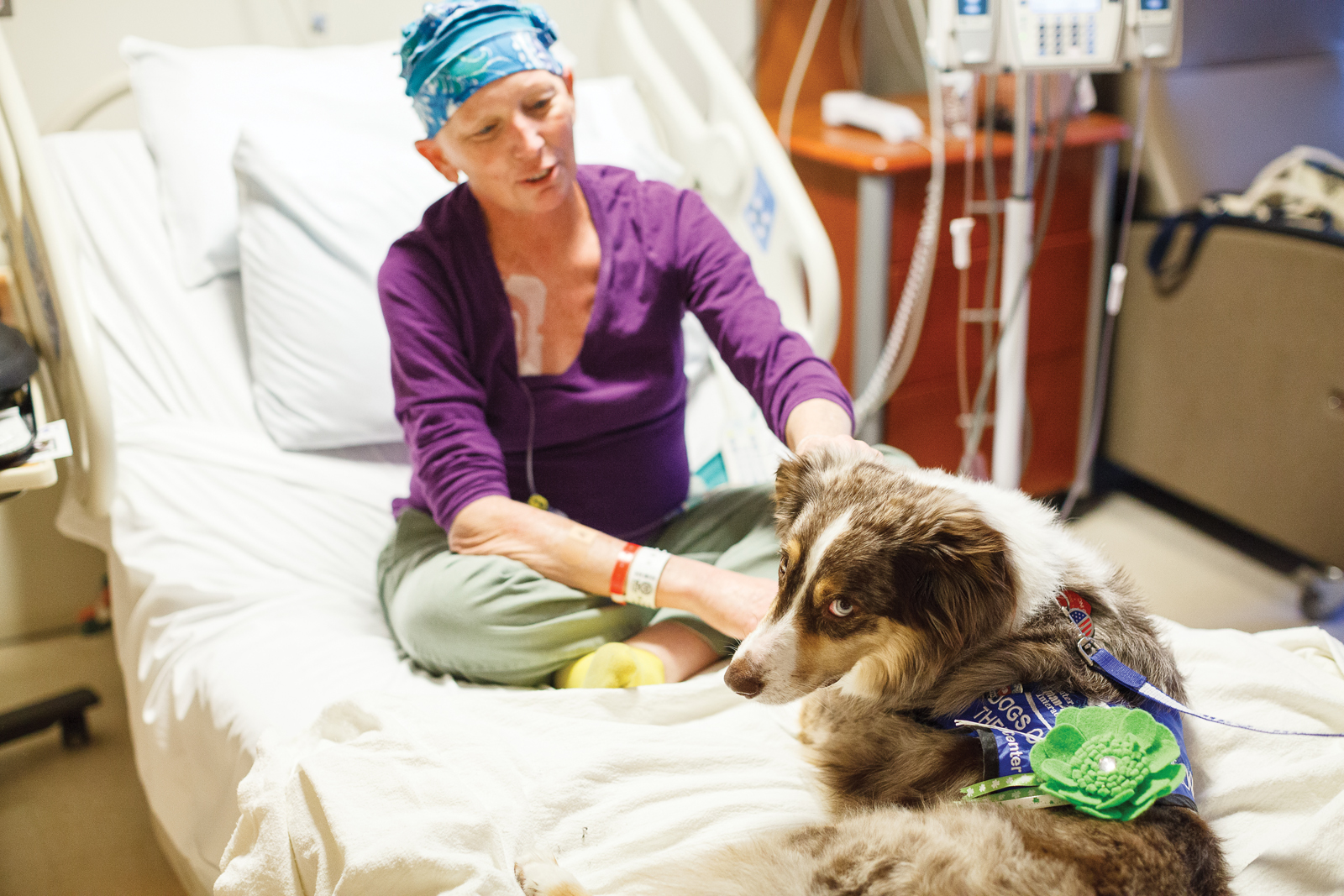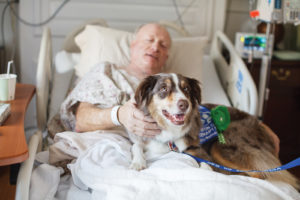Moose: A True Hero Dog
Some boomers are going beyond having pets and are training dogs to serve as four-legged heroes.

Moose, a 5-year-old Australian shepherd, takes a bath and gets her teeth brushed every Monday night before she visits patients the next day at Virginia Commonwealth University Medical Center with her owner/handler Robyn Underwood.
Moose has to be bathed within 24 hours of visiting the hospital to participate in Dogs on Call, a program managed by the VCU Center for Human & Animal Interaction (CHAI).
CHAI Director Sandra Barker says therapy dogs provide comfort and help reduce patients’ stress, anxiety and fear before procedures. “Dogs provide a calming and wonderful distraction. It gives patients a reason to smile,” she said.
Currently, 66 dog/handler teams visit the hospital, but more are needed to meet the demand. To participate, dogs must be registered with either Alliance of Therapy Dogs or Pet Partners, and handlers must attend volunteer orientations at MCV.
‘THE BEST THING YOU’VE DONE’
“It will be the best thing you’ve ever done,” Underwood said. A retired nurse, she became interested in therapy dog programs through her sister, Susan Sexton, who has three therapy dogs.
Underwood began by taking Moose, the only dog she’s ever owned, to several obedience classes at PetSmart. They passed a therapy dog and handler test when Moose was a year old.
“The biggest thing is socialization,” she said. Therapy dogs need to be friendly, have good manners and be able to maintain basic  commands like “sit,” “stay” and “down stay.” They also can’t shy away from noises, wheelchairs, IV poles and other hospital equipment.
commands like “sit,” “stay” and “down stay.” They also can’t shy away from noises, wheelchairs, IV poles and other hospital equipment.
At the hospital, they see people who have requested visits and go to their favorite units – Critical Care and the Massey Cancer Center. Moose “prays” to help break the ice. That is, Underwood kneels and holds up her arm. Then Moose sits, puts her paws on her arm, and tucks her head down between her paws.
They also visit inmates who are patients in the secure unit. “Some of our best visits have happened there,” Underwood said. One lady who bred dogs hadn’t felt a dog’s fur in 10 years, she recalled.
Once a month, they visit the Clover Hill Library to help young children develop confidence in reading through the Read2Rover Program offered through Caring Canines.
Children choose a book, sit beside the dogs and read to them. “It helps kids who are struggling to read. Dogs are not judgmental. It takes the intimidation out of it,” she said.
Caring Canines volunteers also visit hospitals, nursing homes and juvenile correctional facilities.


